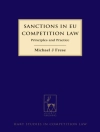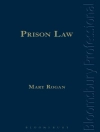Offender rehabilitation theory and practice have traditionally focused on curing "offenders" of their deviant tendencies by changing their habits, opportunities, personality and outlook on life. Consequently, a number of interventions have been developed within the criminal justice system that are said to be involved in helping offenders. Success is measured by recidivism rates. To this end, rehabilitation has become an important aim of sentencing, whether it be in the form of incarceration, community or monetary penalties. Recently, the foundations of rehabilitation theory and practice have been shaken. Rehabilitation is now seen by many as a threat to offenders’ rights and humanitarian principles. Some have even argued that rehabilitation practices are harmful to offenders’ chances of correction. Alongside these concerns, the entire paradigm on which our modern criminal justice systems are based has also been questioned. Alternative visions of justice have been moved out of the shadows in the hope that more effective processes are developed for safer and more just societies. One of these visions is encapsulated in restorative justice, which is based on the foundation of promoting human goods in the pursuit of restoration of harm and the correction of deviant behaviour. Restorative justice practices, such as mediation, circles and conferencing bring to the fore states of affairs, activities and experiences that are strongly associated with well-being and higher level of personal satisfaction and social functioning. They aim to create empathy and remorse, and through constructive and honest dialogue create a sense of responsibility in the "offender" and a feeling of empowerment and justice in the "victim". Within this framework, the labels of "victim" and "offender" collapse. A new approach to crime reduction and offender rehabilitation is thus needed. This ground-breaking, edited volume aims to respond to this call by bringing together inter-disciplinary thinking from criminology, affect-script psychology, sociology, political sciences and human rights, psychology and positive psychology, design and arts and social work. The inter-disciplinary dialogue that this book promotes aims to advance the restorative justice field, its tools, practices and evaluation techniques by bringing rehabilitation theory into the restorative justice debate, and vice versa.Target Audience:Practitioners and policy makers in criminal justice, senior-level capstone courses and upper-level seminars that review and expand on key areas of study in restorative justice, criminology, social sciences, social theory, psychology and positive psychology, law, neuroscience, human rights, criminal justice, and political science departments. The book is also intended for researchers and human rights campaigners internationally.
Theo Gavrielides
Offenders No More [PDF ebook]
An Interdisciplinary Restorative Justice Dialogue
Offenders No More [PDF ebook]
An Interdisciplinary Restorative Justice Dialogue
ซื้อ eBook เล่มนี้และรับฟรีอีก 1 เล่ม!
รูป PDF ● หน้า 344 ● ISBN 9781634837002 ● บรรณาธิการ Theo Gavrielides ● สำนักพิมพ์ Nova Science Publishers ● การตีพิมพ์ 2015 ● ที่สามารถดาวน์โหลดได้ 3 ครั้ง ● เงินตรา EUR ● ID 7226144 ● ป้องกันการคัดลอก Adobe DRM
ต้องใช้เครื่องอ่านหนังสืออิเล็กทรอนิกส์ที่มีความสามารถ DRM












